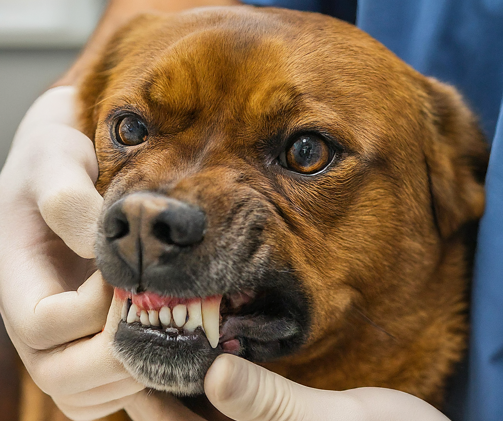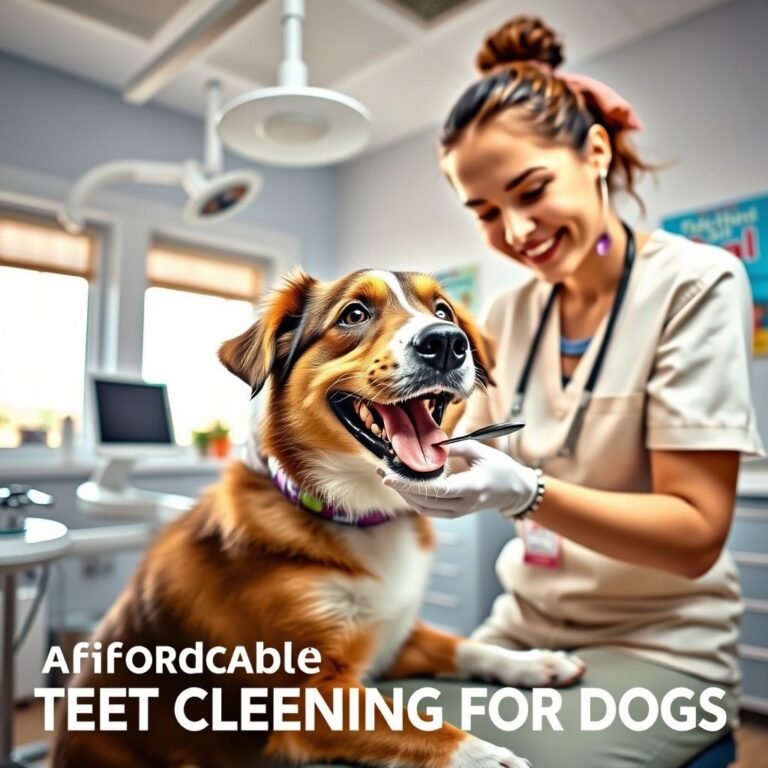Navigating the Maze: A Comprehensive Guide to Dog Tooth Replacement Cost
For dog owners, witnessing our furry companions chomp down on kibble or their favorite chew toy brings a sense of joy. But what happens when that happy chomping is replaced by whimpering and signs of discomfort? Dental issues are a common concern for dogs, and sometimes, a tooth replacement procedure might be necessary. However, the cost associated with these procedures can be a significant hurdle for pet parents. This comprehensive guide delves into the world of dog tooth replacement cost, equipping you with the knowledge to make informed decisions regarding your pet’s dental health.
The Importance of Dental Care in Dogs
Before diving into replacement costs, it’s crucial to understand why dental care is vital for dogs. Just like humans, dogs are susceptible to a variety of dental problems, including:
- Periodontal disease: This is the most common dental disease in dogs, affecting up to 80% of dogs by age 3. It starts with plaque buildup that hardens into tartar, leading to inflamed gums (gingivitis) and eventually, tooth loss.
- Fractured teeth: This can occur due to chewing on hard objects, accidents, or underlying dental issues.
- Abscessed teeth: Bacteria infiltrate the tooth pulp, causing a painful infection.
Left untreated, dental problems can cause significant pain and discomfort for your dog. Additionally, neglected dental issues can lead to more serious health complications, such as heart disease, liver disease, and kidney problems.
Understanding Dog Tooth Replacement Options
When a tooth can’t be saved through cleaning or other treatments, replacement might be the best course of action. There are several options available, each with varying costs and considerations:
- Tooth Extraction: This is the most common and least expensive procedure. The complexity of the extraction (simple vs. surgical) and the number of teeth involved significantly impact the cost.
- Dental Implants: Similar to human implants, these are artificial tooth roots surgically placed in the jawbone. After healing, an artificial tooth crown is attached to the implant. Implants offer a long-term, functional solution, but they are also the most expensive option.
Factors Affecting Dog Tooth Replacement Costs
The cost of dog tooth replacement procedures can vary considerably depending on several factors:
- Location: Veterinary costs can differ based on your geographical location. Generally, costs tend to be higher in urban areas compared to rural areas.
- Veterinary Clinic: Specialization and experience can influence pricing. Specialty veterinary dental practices might charge more than general veterinary clinics.
- Type of Procedure: As mentioned earlier, tooth extraction is typically more affordable than dental implants.
- Anesthesia: The type and duration of anesthesia required for the procedure will affect the overall cost.
- Pre-operative Bloodwork: Veterinarians often recommend bloodwork before anesthesia to assess your dog’s overall health and ensure they can safely undergo the procedure.
- Post-operative Care: This may include pain medication, antibiotics, and follow-up appointments, adding to the final bill.
- Dog’s Breed and Size: Larger breeds generally require more anesthesia and have more complex dental structures, potentially leading to higher costs.
- Pet Insurance: If you have pet insurance with dental coverage, it can significantly reduce your out-of-pocket expenses.
Estimated Costs of Dog Tooth Replacement Procedures
To provide a clearer picture, here’s a table outlining the estimated cost ranges for different tooth replacement procedures:
| Procedure | Estimated Cost Range |
|---|---|
| Simple Tooth Extraction (one tooth) | $100 – $300 |
| Complex Tooth Extraction (one tooth) | $300 – $700 |
| Multiple Tooth Extractions | $500 – $2,000+ |
| Single Dental Implant (including crown) | $1,500 – $3,000+ |
| Multiple Dental Implants (including crowns) | $3,000 – $8,000+ |
drive_spreadsheetExporter vers Sheets
It’s important to remember that these are just estimates. The actual cost for your dog may vary depending on the factors mentioned above.

Planning and Saving for Your Dog’s Dental Care
The high cost of dog tooth replacement procedures highlights the importance of preventive dental care. Here are some ways to safeguard your dog’s oral health and potentially avoid the need for replacements:
- Regular Dental Cleanings: Schedule professional dental cleanings for your dog at least once a year, or more frequently if recommended by your veterinarian.
- Daily Brushing: Brushing your dog’s teeth daily with a pet-safe toothpaste removes plaque and tartar buildup.
Choosing the Right Option and Managing Costs
Once your veterinarian determines the best course of action for your dog’s tooth replacement, it’s time to weigh the options and navigate the financial aspects. Here’s a breakdown to help you make informed decisions:
Tooth Extraction vs. Dental Implants
- Tooth Extraction: This is the most cost-effective option. While extractions can address the immediate problem, it’s crucial to consider the long-term implications. Missing teeth can lead to jawbone deterioration, shifting of other teeth, and difficulty chewing.
- Dental Implants: While significantly more expensive, implants offer several advantages:
- Preserves jawbone health: Implants stimulate the jawbone, preventing deterioration and maintaining facial structure.
- Improved chewing ability: Implants allow for normal chewing function, promoting better digestion and overall health.
- Durability and longevity: With proper care, implants can last for many years.
Making a Choice:
The decision ultimately depends on your dog’s needs, your budget, and your long-term goals. Here are some questions to consider:
- Age and overall health of your dog: Dental implants might not be suitable for older dogs or those with underlying health conditions.
- Severity of tooth loss: If multiple teeth are missing, implants might be the best option for long-term functionality.
- Lifestyle and chewing habits: If your dog is an avid chewer, implants might be a more durable solution.
Managing the Costs of Dog Tooth Replacement
The financial burden of dog tooth replacement procedures shouldn’t prevent you from providing your pet with the necessary care. Here are some strategies to manage the costs:
- Pet Insurance: Consider pet insurance with dental coverage. While some plans might have limitations or exclusions, it can significantly reduce out-of-pocket expenses.
- Care Credit: Financing options like CareCredit allow you to spread out the cost of veterinary procedures into manageable monthly payments.
- Veterinary Payment Plans: Some veterinary clinics offer in-house payment plans to help make procedures more affordable.
- Comparison Shopping: Get quotes from multiple veterinary clinics in your area to compare prices. While cost shouldn’t be the sole factor, comparing prices can help you find the best value for your money.
Additional Resources
Here are some additional resources to delve deeper into dog dental care and tooth replacement procedures:
- American Veterinary Dental College (AVDC): https://avdc.org/
- Veterinary Partners: https://myvetpartners.com/carepackages-applevalley/
- American Animal Hospital Association (AAHA): http://www.aaha.org/wp-content/uploads/globalassets/02-guidelines/dental/aaha_dental_guidelines.pdf
Conclusion
Dog tooth replacement procedures can be a significant financial investment. However, prioritizing your dog’s dental health is crucial for their overall well-being. By understanding the factors influencing costs, exploring various options, and considering financial strategies, you can make informed decisions to ensure your furry friend receives the dental care they need. Remember, preventive dental care is the best defense against tooth loss, saving you money and heartache in the long run.
FAQs
- What are the signs that my dog might need a tooth replacement? Signs can include bad breath, difficulty chewing, pawing at the mouth, bleeding gums, or loose teeth.
- How long does a dog tooth replacement procedure typically take? The duration depends on the complexity of the procedure but can range from 30 minutes to several hours.
- What is the recovery time for a dog tooth replacement procedure? Recovery time varies depending on the procedure and your dog’s individual healing process. Typically, it takes 7-10 days for complete healing.
- How can I prevent my dog from needing a tooth replacement? Regular dental cleanings, daily brushing, and providing dental chews can significantly reduce the risk of tooth loss.
By providing this comprehensive guide, we hope to empower you to make informed decisions regarding your dog’s dental health. Remember, a healthy smile is a happy smile, for both you and your furry companion!


